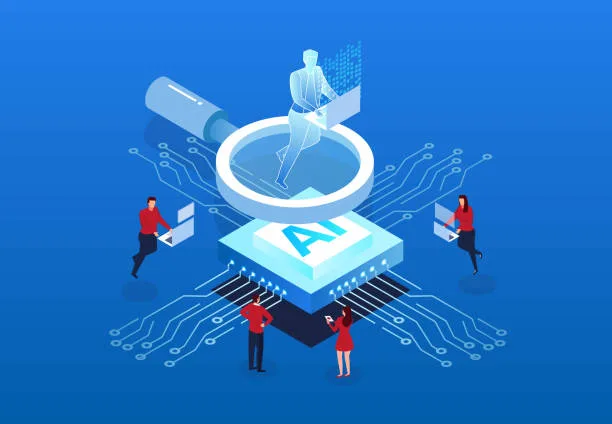
Best Practices for AI Implementation
In the rapidly evolving landscape of modern business, integrating artificial intelligence (AI) has become a key strategy for success. The implementation of AI, however, requires careful planning, consideration, and adherence to best practices to ensure optimal results. In this article, we will explore the best practices for AI implementation, covering everything from planning and data preparation to employee training and ethical considerations.
Introduction
In today’s digital age, AI implementation is not just a buzzword but a strategic necessity for businesses aiming to stay competitive. As organizations increasingly embrace AI technologies, it becomes crucial to understand the best practices that lead to successful integration.
Understanding AI Implementation
Defining AI Implementation
AI implementation refers to the process of incorporating artificial intelligence technologies into existing business operations. This can range from utilizing machine learning algorithms for data analysis to deploying AI-driven solutions for customer service.
Different Approaches to AI Integration
Businesses can opt for various approaches, such as gradual integration or a complete AI overhaul. Understanding the different methods helps tailor the implementation strategy to specific organizational needs.
Different Approaches to AI Integration
Businesses can opt for various approaches, such as gradual integration or a complete AI overhaul. Understanding the different methods helps tailor the implementation strategy to specific organizational needs.
Common Challenges in AI Implementation
Despite the numerous benefits, challenges such as resistance from employees and technical complexities often arise. Acknowledging and addressing these challenges is integral to a successful AI implementation journey.
Planning for AI Integration
Conducting a Comprehensive Needs Analysis
Before diving into AI implementation, it’s essential to conduct a thorough analysis of the organization’s needs. Identifying specific pain points and areas for improvement guides the selection of appropriate AI solutions.
Establishing Clear Objectives and Goals
Setting clear objectives ensures that AI implementation aligns with broader business goals. Whether it’s enhancing efficiency, improving customer satisfaction, or reducing operational costs, clarity in objectives is paramount.
Creating a Realistic Timeline
AI implementation is not an overnight process. Crafting a realistic timeline that considers the complexities involved helps manage expectations and ensures a smoother transition.
Choosing the Right AI Solution
Assessing Business Needs
Not all AI solutions are created equal. Assessing business needs, including the type and volume of data involved, helps narrow down the options and select a solution that best fits the organization.
Evaluating Available AI Technologies
The market is flooded with diverse AI technologies. Evaluating available options in terms of functionality, scalability, and compatibility is crucial for making an informed decision.
Ensuring Scalability and Flexibility
As businesses grow, so do their AI requirements. Choosing a solution that scales with the organization’s growth and allows for flexibility in adapting to evolving needs is essential.

Data Preparation and Quality
Importance of Quality Data for AI Success
The saying “garbage in, garbage out” holds true for AI implementation. High-quality data is the lifeblood of successful AI models. Ensuring data accuracy and relevance is paramount.
Data Cleaning and Preprocessing
Raw data often requires cleaning and preprocessing to eliminate inconsistencies. This step is vital for training accurate and reliable AI models that yield meaningful insights.
Ensuring Data Privacy and Security
With data breaches becoming more prevalent, ensuring the privacy and security of sensitive information is non-negotiable. Implementing robust measures to protect data is integral to building trust.
Employee Training and Involvement
Training Staff for AI Adoption
Employees play a crucial role in the success of AI implementation. Providing comprehensive training programs ensures that staff can effectively use new AI tools and understand their benefits.
Fostering a Culture of Innovation
Encouraging innovation and a positive attitude toward AI adoption creates an environment where employees actively contribute to the implementation process.
Involving Employees in the Implementation Process
Seeking input from employees who will directly interact with AI systems helps address concerns and ensures a smoother transition. Involvement fosters a sense of ownership and cooperation.
Testing and Piloting
Importance of Testing Before Full Deployment
Rushing into full deployment without adequate testing can lead to unforeseen issues. Thoroughly testing AI solutions in controlled environments helps identify and rectify potential problems.
Piloting AI Solutions in a Controlled Environment
Conducting pilot programs allows organizations to observe how AI performs in real-world scenarios with minimal risk. This phased approach enables fine-tuning before widespread implementation.
Gathering Feedback and Making Necessary Adjustments
Feedback from users during pilot phases provides invaluable insights. Organizations should actively seek input and be willing to make adjustments based on user experiences.

Overcoming Resistance and Challenges
Addressing Employee Concerns
Resistance to change is natural. Acknowledging and addressing employee concerns, whether related to job security or fears of technology, is crucial for a smooth transition.
Managing Resistance to Change
Change management strategies, including open communication and employee support programs, help manage resistance and create a more positive outlook toward AI adoption.
Dealing with Unexpected Challenges
Unforeseen challenges may arise during implementation. Having contingency plans in place and a responsive team ready to address issues ensures that setbacks are minimized.
Monitoring and Evaluation
Implementing Monitoring Mechanisms
Continuous monitoring of AI systems ensures that they operate as intended. Implementing monitoring mechanisms allows organizations to detect and address issues promptly.
Regular Evaluation and Feedback Loops
Regular evaluations, coupled with feedback loops, enable organizations to assess the ongoing impact of AI implementation and make necessary adjustments for optimal performance.
Making Continuous Improvements
The AI landscape evolves rapidly. Organizations must be agile and open to making continuous improvements to stay ahead in the dynamic field of artificial intelligence.
Ensuring Ethical AI Practices
Importance of Ethical Considerations
AI technologies come with ethical implications. Prioritizing ethical considerations, including fairness, transparency, and accountability, is essential for responsible AI implementation.
Incorporating Fairness and Transparency
Ensuring fairness in AI algorithms and maintaining transparency in how AI-driven decisions are made builds trust among users and stakeholders.
Mitigating Bias in AI Algorithms
Addressing bias in AI algorithms is a critical aspect of ethical AI implementation. Organizations must actively work to identify and eliminate biases that may impact decision-making.
Cost Considerations
Budgeting for AI Implementation
While the benefits of AI can be substantial, organizations must carefully budget for implementation costs. This includes initial setup, training, and ongoing maintenance expenses.

Assessing Long-Term Costs and Benefits
A comprehensive assessment of long-term costs and benefits helps organizations gauge the return on investment (ROI) of AI implementation and make informed decisions.
Identifying Potential Cost-Saving Measures
Strategically identifying areas where AI can lead to cost savings, such as automation of repetitive tasks, enhances the overall financial viability of AI implementation.
Case Studies
Examining Successful AI Implementation Cases
Real-world case studies provide valuable insights into successful AI implementations across different industries. Learning from the experiences of others can inform effective strategies.
Learning from Industry Leaders
Analyzing how industry leaders have embraced AI sheds light on best practices and innovative approaches. Emulating successful models can guide organizations toward their own AI success.
Extracting Valuable Insights
Every successful AI implementation offers unique lessons. Extracting valuable insights from case studies helps organizations tailor their approach to align with specific goals and challenges.
Future Trends in AI Implementation
Emerging Technologies in AI
Staying abreast of emerging technologies, such as advanced machine learning algorithms and natural language processing, positions organizations to adopt cutting-edge AI solutions.
Staying Ahead in the AI Landscape
Continuous learning and adaptation are key to staying ahead in the competitive AI landscape. Organizations should foster a culture of innovation and remain agile in embracing new technologies.
Conclusion
In conclusion, implementing AI requires a strategic and comprehensive approach. From planning and data preparation to employee involvement and ethical considerations, following best practices ensures a smoother and more successful integration. Embracing AI responsibly not only enhances organizational efficiency but also contributes to long-term growth and competitiveness.

FAQs
- What are the primary challenges in AI implementation?
- AI implementation faces challenges such as resistance from employees, data quality issues, and ethical considerations. Overcoming these challenges requires careful planning and a proactive approach.
- How can businesses overcome resistance from employees during AI adoption?
- Businesses can overcome resistance by providing comprehensive training, fostering a culture of innovation, and actively involving employees in the implementation process. Open communication and addressing concerns are also crucial.
- Why is ethical consideration crucial in AI implementation?
- Ethical considerations are vital to ensure that AI technologies are used responsibly. This includes addressing bias in algorithms, maintaining transparency, and prioritizing fairness to build trust among users.
- What are the key factors to consider when choosing an AI solution?
- Choosing the right AI solution involves assessing business needs, evaluating available technologies, and ensuring scalability and flexibility. It’s crucial to select a solution that aligns with the organization’s goals and can adapt to future requirements.
- How can businesses ensure data privacy and security in AI implementation?
- Ensuring data privacy and security involves implementing robust measures, conducting regular audits, and staying compliant with data protection regulations. Prioritizing the safeguarding of sensitive information is essential for successful AI implementation.





